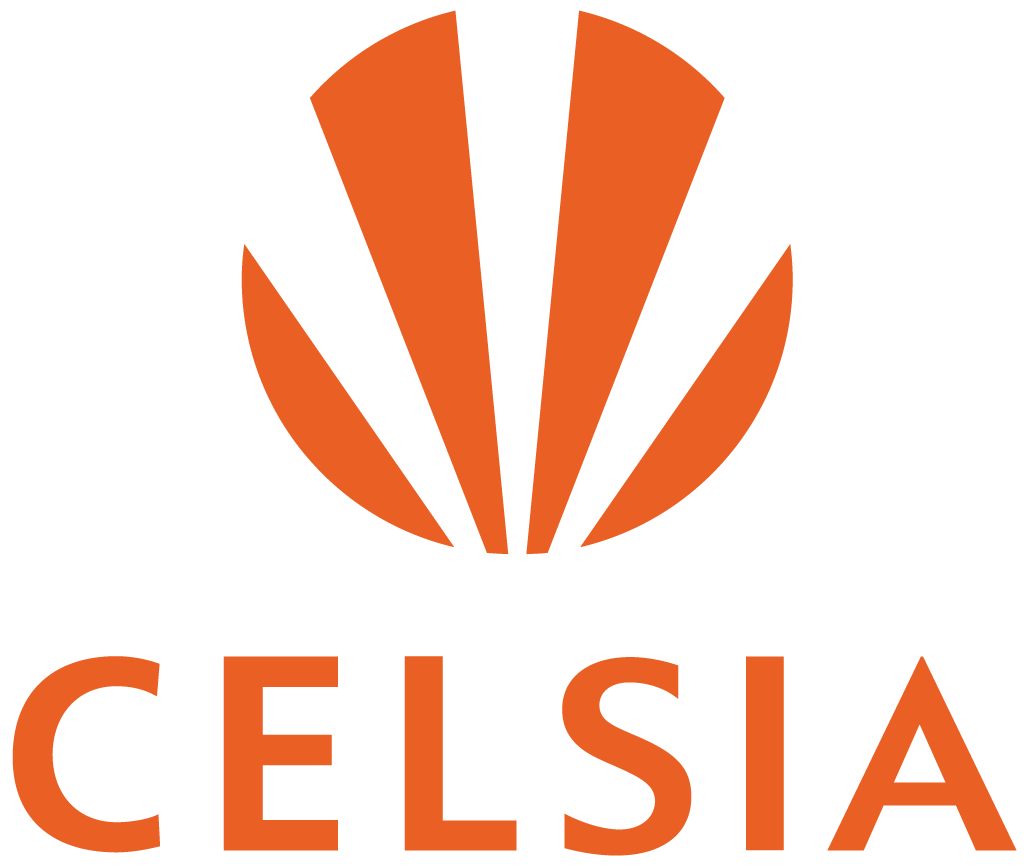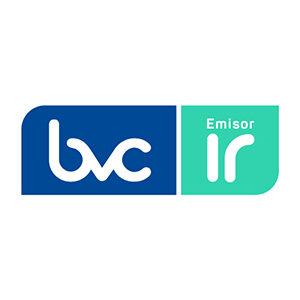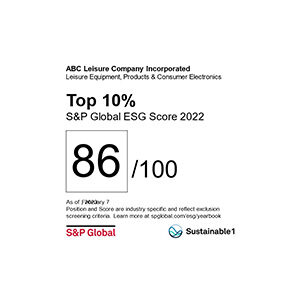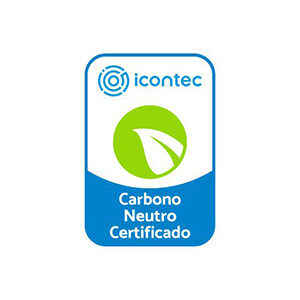A large part of Celsia’s businesses, projects and activities are carried out in a sector that – by providing an essential public service – generates a relevant social impact.
GRI (3-3) The social and political environment is essential to guarantee the conditions that allow us to carry out the activities in which we participate, providing society with access to this essential service.
The operation of our current businesses, as well as the growth in new businesses, are boosted or restricted in accordance with the construction of an adequate regulatory framework that is transformed according to the evolution of the market. Economic regulation is necessary in the market in which Celsia operates, since public utilities are natural monopolies. This issue allows the State to eliminate market failures, create a safe environment for the industry to develop and offer a better service at competitive prices for users, assuring its access, quality and reliability.
Regulatory management from Celsia allows us to grow as a Company within defined rules of the game, as well as anticipate regulatory changes that may positively or negatively affect our Organization. On the other hand, this work makes it possible to make projects and new businesses viable through joint work with the regulator.
Our Management
GRI (3-3) As a Company, we adapt to the political and social environment of the energy sector.
Most of the countries are focusing on the decarbonization of the economy and energy transformation, which increasingly leads us to reduce greenhouse-gas (GHG) emissions and transform the energy matrix towards one with a greater participation of unconventional renewable-energy sources. This scenario produces a great impact on different economic sectors and, mainly, on ours.
We are proactive and we are attentive to changes in the regulation related to this issue. At Celsia, we carry out Regulatory Impact-Analysis Processes, which allow us to carry out a systematic, coherent evaluation of the policies issued by governments within the framework of their legal powers and in line with our Organization’s Strategic Objectives.
Our participation and leadership before unions and the Government is focused on promoting those adjustments necessary to modernize the energy market so that it is reflected in a quality, affordable service for our clients, by bringing electricity to the most remote areas of the Departments where we operate.
In Central America, we work with sectoral associations, actively responding to public consultations opened by government entities.
Through project development and service provision, we managed to positively impact our Stakeholders, providing development, employment and an essential quality service.
Impact Management
GRI (3-3) (2-25) (2-29)
- At Celsia, we carry out Regulatory Impact-Analysis Processes, which allow us to carry out a systematic, coherent evaluation of the policies issued by the government within the framework of its legal powers and in line with our Organization’s Strategic Objectives.
- Within the framework of the inflationary situation that the country is experiencing, we worked with unions to propose options to the government that would allow mitigating the effect on energy rates. In turn, with the new government, we have worked to present proposals that contribute to the objective of accelerating the energy transition with a focus on justice and equity, and that, in turn, strengthen the sector’s institutional framework.
- Through project development and service provision, we managed to positively impact our Stakeholders, providing development, employment and an essential quality service.
- In the political field, through the unions we contribute to the processes of citizen participation with our vision on the bills that are processed in the legislature, so that a policy that benefits the country is built.
Contributions
Typology and Value of Political Contributions
Our Highest Contributions
All the contributions in this chapter correspond to the support fees paid by Celsia as a member of associations and unions.
GRI (415-1)
Issue that Is the Object of the Public Political Contribution
Tariff Justice PactCelsia’s Position on the Issue: Support
Issue that Is the Object of the Public Political Contribution
Advanced Metering Infrastructure (AMI) – Energy-Transition LawCelsia’s Position on the Issue: Support
Other Significant Contributions
GRI (415-1)
Name and Description of the Organization
The National Business Association of Colombia (ANDI) Type of Organization: Union
Has a Vice Presidency of Mining, Hydrocarbons and Energy that oversees the needs of these sectors, especially in environmental, social, legal, logistical and economic matters. This contribution corresponds to the support fees that Celsia pays as a member of this association, for the Tolima Social Fund.
Name and Description of the Organization
The National Association of Public-Utilities and Communications Companies (ANDESCO) Type of Organization: Union
Is a non-profit trade association that represents the interests of affiliated public-utilities and communications companies. This contribution corresponds to the support fee that Celsia pays as a member of this association and union.
Name and Description of the Organization
The Buenaventura Inter-Union and Inter-Business CommitteeType of Organization: Union
Is constituted as a non-profit association, under private law, with its own assets and administrative autonomy, which is made up of union representatives of a legally constituted economic activity. These are Companies that carry out their economic activity in the city and by entities constituted for the social, business, environmental and economic sustainability development of Buenaventura. This contribution corresponds to the support fee that Celsia pays as a member of this association.
Celsia seeks, with the help of the unions, to deepen and contribute with studies and technical arguments on strategic issues that the energy sector in Colombia requires in order to continue offering a service with excellent quality and reliability, where the client perceives the benefits and, thus, turns them into our fans. This year, emphasis was placed on the country’s energy transition, where we are constantly seeking to be active actors.
Security and Blockages
For Celsia, it is important to manage the sociopolitical risks identified in projects and offices, and it represents the way in which a solution is sought through integrating thinking, generating not only access to a Risk-Management Plan that achieves success for the Company but also consolidates our ties with Stakeholders and strategic allies.
From the Celsia Resource Protection Team, it is fundamental and is due to continuous work to manage the sociopolitical risks that are identified in all the offices and projects; this, in order to guarantee safe conditions for employees, contractors and communities in the areas of influence. We do this management process through our allies, the private-security company and the public force, which forms a strategic pillar to guarantee business continuity.
Understanding the context in which we operate guides us to be more dynamic through the challenges and opportunities presented.
Operations Affected by Blockages 2022
During 2022, blockages occurred at the Tesorito Project, our thermal-generation plant located in the municipality of Sahagún, Córdoba, and at the Salvajina Hydroelectric Plant, in the municipality of Suárez, Cauca, both in Colombia.
After providing the dialogue mechanisms through social teams and territorial entities, and taking into account that de facto measures were taken and the other party did not want to talk, the measures we took avoided the violation of Human Rights for the community, employees and contractors, since the public force guaranteed harmonious coexistence and restored order, all framed in the security strategy that we have stipulated internally, in a differential way and obeying a diagnosis for each site and project.
SASB (IF-EU-550a.1) During 2022 at Celsia, there were no incidents of non-compliance with physical security standards or regulations.
Principal Results in 2022
GRI (3-3)
Principal achievements of regulatory management:
We promoted and achieved the inclusion of Tolima in the Distribution Area – ADD Oriente – which achieved a significant reduction of more than COP 200/kWh in the medium-term rate for all our clients in that Colombian Department. With this result, we were able to carry out an Equity Policy, such as the ADD, which our clients were not receiving in this Department and providing them with access and better conditions.
Given the inflationary situation that has been affecting the cost of energy in Colombia and despite the great political pressure to intervene in the market, together with the unions we managed to reach an agreement with the Ministry called “Tariff Justice Pact” that allowed transferring our clients a reduction in the rates for the months of November and December 2022 and limit the rate increase until September 2023.
Before unions and the government, we continued to promote the need for adjustments in some requirements demanded for small-scale generation based on FNCER (wind and solar) that were making the projects unfeasible. As a result of this, CREG Resolution 101 027 of 2022 was issued, which modulates the previous requirements.
In Panama, we presented Celsia’s vision to the Ministry of Energy (SEN) on issues such as distributed generation, the concept of power acquisition for current large clients. The license for the cofferdam was obtained and, thus, the water supply to the Lorena and Prudencia Power Plants was recovered.
In Honduras, being a developing electricity market, we had the opportunity to be an active part in the observations and comments on the regulations and methodologies regarding the electricity market.
In Costa Rica, we are part of the board of directors of ACOPE, a union in which we occupy the Vice Presidency of wind energy, from where we have participated in formal consultations of regulations and laws of the Energy-Sector Reform Plan. Eligibility certification was obtained for three 20 MW wind projects on the land adjacent to the Guanacaste Wind Farm.
Lessons Learned
We dare to be different and we are purposeful and innovative in the energy sector. We have been pioneers in the development of projects aligned with the goals of the National Government, such as solar farms. Our business is oriented to renewable energies and electric mobility. One lesson we have learned is to carry out our activities under the regulatory and legal framework of the countries where we operate, but also to propose regulatory adjustments to enable new business models that positively impact our Company and the sector.
GRI (3-3) Short-, Medium- and Long-Term Objectives:
Short Term(0 to 2 years)
- Contribute to the development of the new government’s Energy-Transition Roadmap, to continue promoting the incorporation and development of new technologies, as well as innovative-business models that benefit various types of clients and communities.
- Promote a competitive framework for the incorporation of distributed-energy resources and, in general, the development of models related to the modernization of energy distribution, such as storage, microgrids, transactional platforms, among others.
- Promote the most appropriate implementation of smart metering and the regulation of the conditions applicable to the development of the new conditions and services that are enabled with this milestone, in response to demand and the progressive liberalization of retail marketing, among others.
- Materialize a robust market for tradable carbon credits and promote the use of green hydrogen as an energy vector and industrial use.
- Continue participation in the energy-strategy roundtables with the governments where we are present, through alliances with unions in the energy sector to expand and disseminate our strategy as a Company.
- For Panama, be active in the issue of the fourth transmission line and participate in the bidding, if approved by the Board of Directors.
- For Honduras, expand the business of solar farms and roofs, primarily with industrial clients. Work towards obtaining the approval of the rates for surpluses.
- For Costa Rica, be active in the changes that will be made in the market (through the action of the Costa Rican Association of Energy Producers (ACOPE, in Spanish) before deputies, the Ministry of Energy and the Regulator) and actively participate in future renewable-energy tenders. Celsia has eligibilities for three 20 MW projects, which are being managed to participate in the summons.
- Explore the regulatory framework in Central-American countries where we are not yet present, for the entry of new Celsia businesses; the goal is at least two additional countries in the short term.
- All these goals are subject to change, due to government policies in each country.
Medium Term(3 to 5 years)
- Lead, directly and through the unions, proposals that enable a flexible framework for the development of new businesses derived from the implementation of AMI and the modernization of distribution systems, both at the distributed level and on a large scale in Colombia and Central America.
- Promote the liberalization of the market, seeking a high degree of competition in the retailer, so that Colombia is an example in this matter and which, in addition, leads to greater efficiency in electricity consumption,clients who are more aware of their consumption and the use of the network, so that the cost of the service is affordable to all our clients, especially the most vulnerable, due to their economic condition.
- Develop community solar farms that allow members of a community to share the benefits of solar energy, in which a virtual net-metering scheme is applied.
- Contribute to the development of electric mobility in Panama through private associations.
- Enter a new country in the region, either with solar-roof solutions or as an energy marketer.
Long Term(6 or more years)
- Contribute and work together in the advanced stages of the transformation of the Colombian electricity market, striving for the digitalization of the energy service and the modernization of the distribution, as a transactional meeting platform among consumers, prosumers, demand aggregators and energy marketers.
- Promote client empowerment through knowledge of their data, so that they modify their consumption profile with all the information available, in the free market and maximize their well-being.
- Promote the development of microgrids, both for the countries where we are present and for new destinations.
- Venture into a Caribbean country with distributed generation.
Energy Efficiency: The ability to obtain the best results in any activity using the least possible amount of energy resources. It allows us to reduce the consumption of any type of energy and, thus, the possible environmental impacts associated with it.
AMI: Advanced Metering Infrastructure (Smart Meters).
FNCER (Unconventional Renewable-Energy Sources): Renewable-energy resources available worldwide, which are environmentally sustainable, but which are not used in the country or are used marginally and are not widely marketed.
GHG (Greenhouse Gases): The gaseous components of the atmosphere, natural and resulting from human activity, which absorb and emit infrared radiation. This property causes the greenhouse effect.
Regulatory Framework: All resolutions issued by the Energy and Gas Regulation Commission (CREG, in Spanish). It is part of the General Framework, such as the Political Constitution, and is made up, among others, of codes, laws, decrees.
Energy Transition: The process of changing from one form of energy production to another, and includes renewable and non-renewable energy sources. Among the changes is the replacement of fossil fuels, such as coal and oil, with renewable sources, such as solar and wind power.
Paris Agreement: This is an agreement within the framework of the United Nations Framework Convention on Climate Change, which establishes measures to reduce greenhouse gas emissions.
Green Hydrogen: This is the hydrogen obtained through the use of renewable energies in its production, which makes it a clean, sustainable fuel with a zero pollution index, which can be key not only as an energy vector but also as a raw material.
Microgrids: A group of loads and distributed-energy resources with a clearly defined electrical border, which has the capacity to be self-sufficient and operate in isolation or in parallel with the electrical system to meet local demand.
Electric Mobility: This consists of the integration of new technologies to get around, such as bicycles, skateboards, motorcycles and electric cars. This has become one of the main objectives in the world to mitigate damage to the environment and reduce the effects of climate change.
Prosumer: Users who actively participate in the service-provision chain with different interactions, usually with self-consumption and, in addition, have the possibility of benefiting from their energy surpluses.






